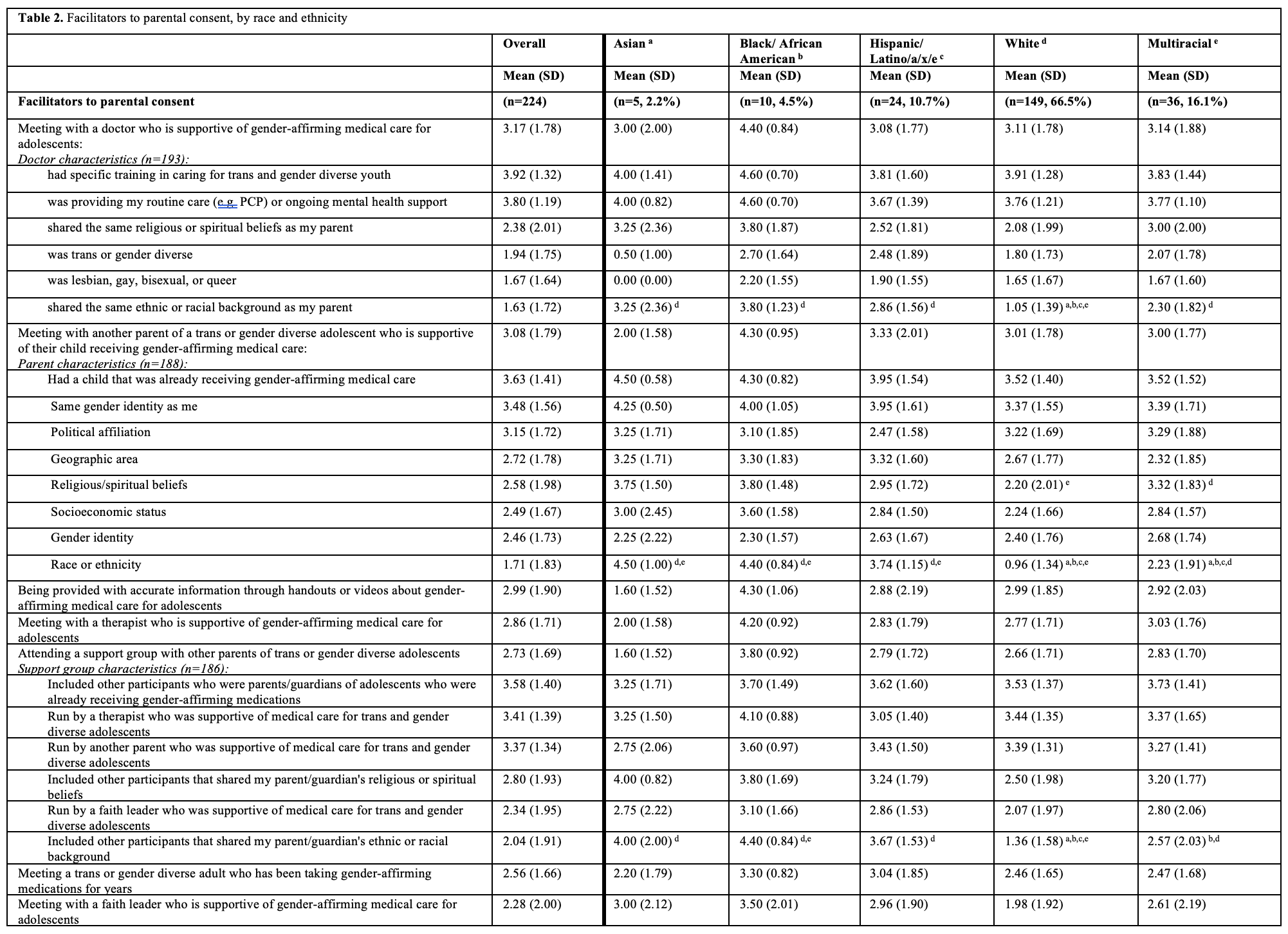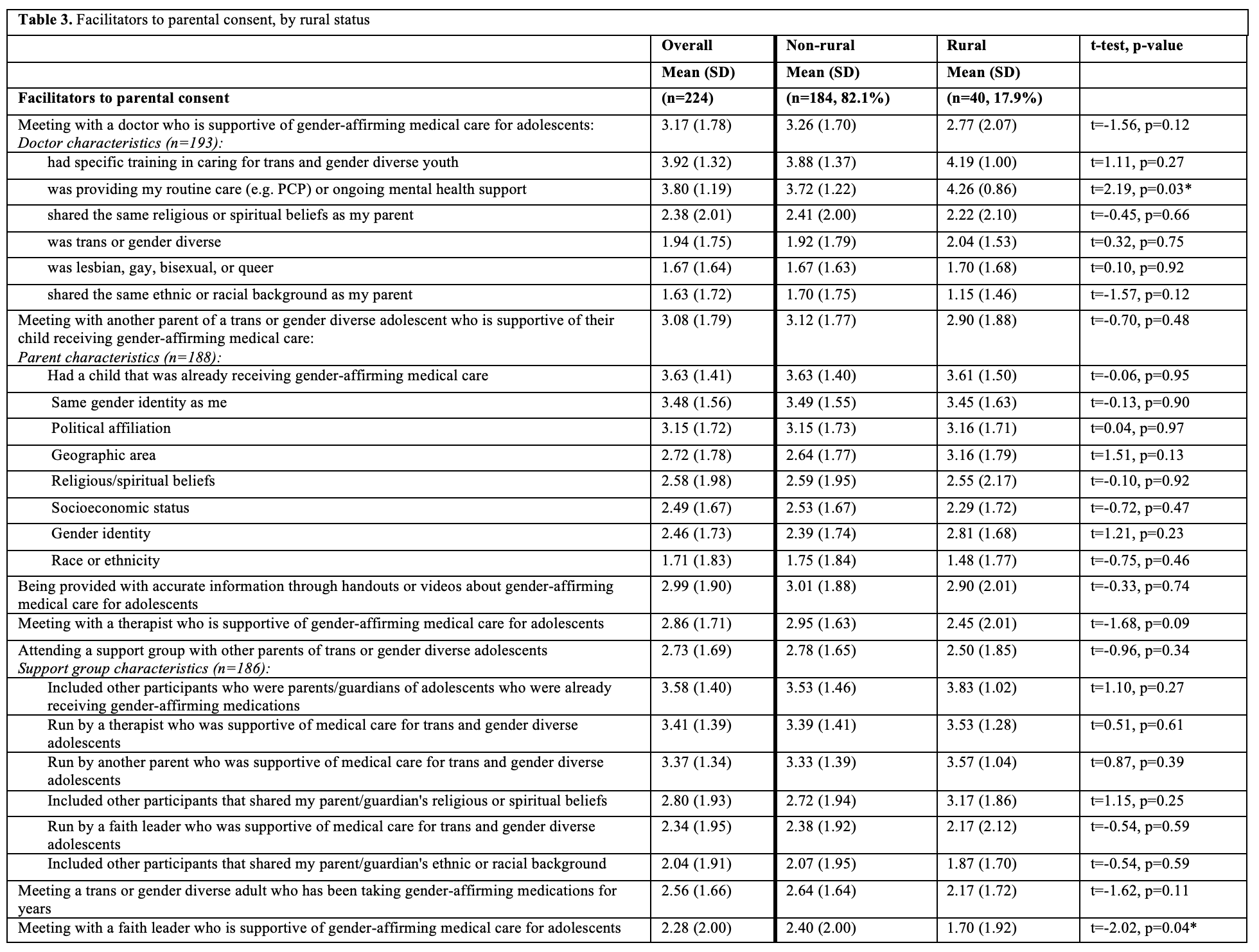Adolescent Medicine
Session: Adolescent Medicine 1
141 - Transgender and Nonbinary Young Adult-Perceived Facilitators to Parental Consent for Gender-Affirming Care As a Minor
Friday, May 3, 2024
5:15 PM - 7:15 PM ET
Poster Number: 141
Publication Number: 141.276
Publication Number: 141.276
- KK
Kacie M. Kidd, MD MS (she/her/hers)
Assistant Professor
West Virginia University School of Medicine
Morgantown, West Virginia, United States
Presenting Author(s)
Background: Gender-affirming medical care (GAMC) is associated with improved outcomes for transgender and nonbinary (TNB) adolescents, yet many face barriers to receiving this care. Parents, who must provide consent for adolescents to receive GAMC, play a key role in facilitating access for TNB youth.
Objective: This study aimed to (1) identify key facilitators of parental willingness to consent for GAMC, and (2) explore demographic variation in these facilitators among TNB young adults interested in but unable to access GAMC as adolescents, at least in part due to lack of parental consent.
Design/Methods: An online survey was distributed to TNB young adults (ages 18-20) who were receiving care through Plume, the largest virtual provider of GAMC for adults in the US. Participants were asked how likely various interventions would be to increase their parent’s willingness to consent for GAMC on a Likert scale (0=not likely at all, 5=extremely likely) as well as the importance of various characteristics of these interventions (e.g., provided by or included others who shared their demographic background). T-tests were used to compare mean ratings of potential facilitators by demographic characteristics (i.e., race and ethnicity, rural status).
Results: TNB respondents (n=224) indicated that meeting with a doctor who is supportive of GAMC for adolescents (3.17±1.78) would be most likely to increase their parents’ willingness to consent. Compared to those who lived in non-rural areas, rural respondents felt it would be significantly more helpful if this provider was their primary care provider (PCP; 4.26 vs. 3.72; p< 0.05). Asian (4.00±2.00), Black (4.40±0.84), Latine (3.67±1.53), and multiracial respondents (2.57±2.03) indicated that support groups that included participants who shared their parent’s ethnic or racial background was significantly more important than did White respondents (1.36±1.58; p< 0.05). There were no statistically significant differences in these facilitators by gender identity, nor by US region.
Conclusion(s): Meeting a supportive doctor was the most likely facilitator of parental willingness to consent for GAMC. Among rural youth, it was especially helpful if this provider was their PCP. Asian, Black, Latine, and multiracial respondents indicated that a support group inclusive of parents who shared their race or ethnicity was among those most important factors . Understanding the unique needs of diverse groups of TNB youth can help develop effective services and supports for those who desire GAMC.
.png)


